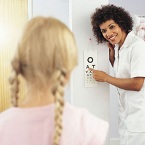- Thermalito Union Elementary
- Screenings and Education
Health Services
Page Navigation
- Home
- Health Office Forms
- Immunization Requirements
- Oral Health and School Readiness -SMILE California
- Screenings and Education
- Local Resources and Providers
- Chronic Health Conditions -Resources
- The Eric Paredes Sudden Cardiac Arrest Prevention Act
- Helpful Links
- Fentanyl Awareness
- Comprehensive Sexual Health & HIV/AIDS Instruction
- Resources for Helping Children After a Disaster
- Contact -District Nurse
-
Grade Levels for State Mandated Screenings:
- Hearing
- Kindergarten (K)
- Second (2nd)
- Fifth (5th)
- Eighth (8th)
- Vision
- Kindergarten (K)
- Second (2nd)
- Fifth (5th)
- Eighth (8th)
- First grade boys -color vision screening
Hearing and vision screenings are also done for IEPs and teacher referrals and parent requests.
________________________________________________________________________________________
Health Education in the classroom provided by the School Nurse or other qualified staff:
- Human Growth, Development, Hygiene and Puberty (5th grade)
- Comprehensive Sexual Health & HIV/AIDS instruction per the California Healthy Youth Act (7th or 8th grade)
________________________________________________________________________________________
Health Screenings at School -an article by the American Academy of Pediatrics.
Health Screenings at School

In most schools, children in the middle years are routinely screened for a number of common physical conditions. Hearing and vision tests are two of the most frequent evaluations, important because difficulties with these senses are often subtle, and neither parents, teachers, nor children may even recognize that a problem exists. While most difficulties with hearing or vision should have been identified prior to entering school, some may have been missed and others develop later. A child who has difficulty reading the blackboard may not know that she is seeing differently from anyone else. Nevertheless, even mild deficiencies of sight can significantly affect a child's ability to learn.
In some states these screening tests are mandated by law and may also include dental checks, scoliosis evaluations, blood pressure readings, and height and weight measurements. In school districts in which nurses are available for more thorough assessments, testing for tuberculosis and even physical exams may be conducted.
If the school notifies you that these screenings have turned up a potential problem in your child, have her checked by your pediatrician. In the meantime the school nurse should be able to tell you what the school's findings may mean, and whether there is any urgency in obtaining an evaluation by your doctor. In some cases you may be able to wait until your youngster's next well-child visit for a repeat screening or a more comprehensive evaluation.
Sometimes your youngster's pediatrician will find that the suspected abnormality is not serious after all. Even so, this does not mean that the screening was inaccurate. Screening tests are designed to identify children who may have a problem, but a more thorough examination by a doctor is always necessary to determine the extent and severity of the condition- Last Updated
- 11/21/2015
- Source
- Caring for Your School-Age Child: Ages 5 to 12 (Copyright © 2004 American Academy of Pediatrics)
- Hearing

